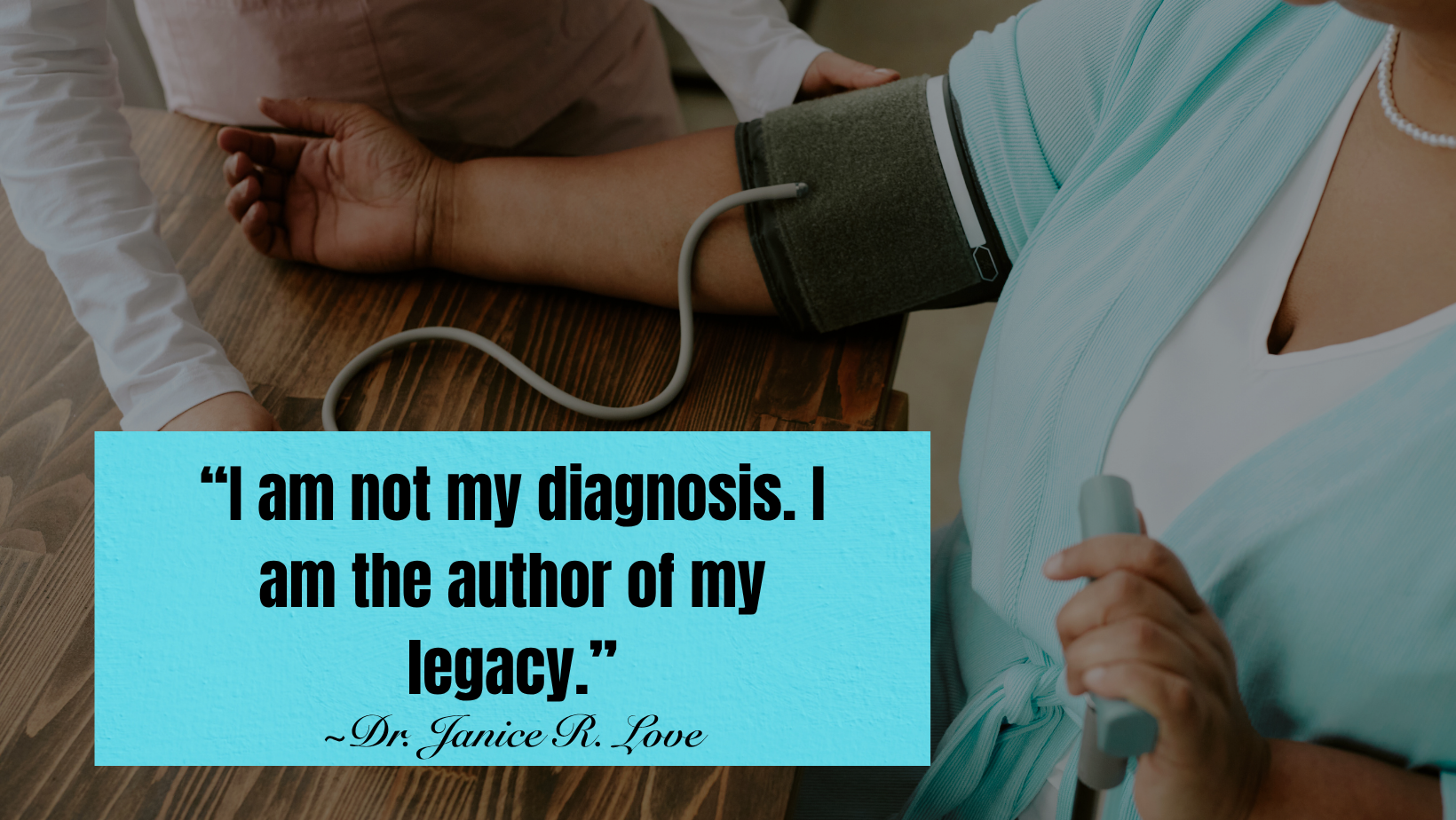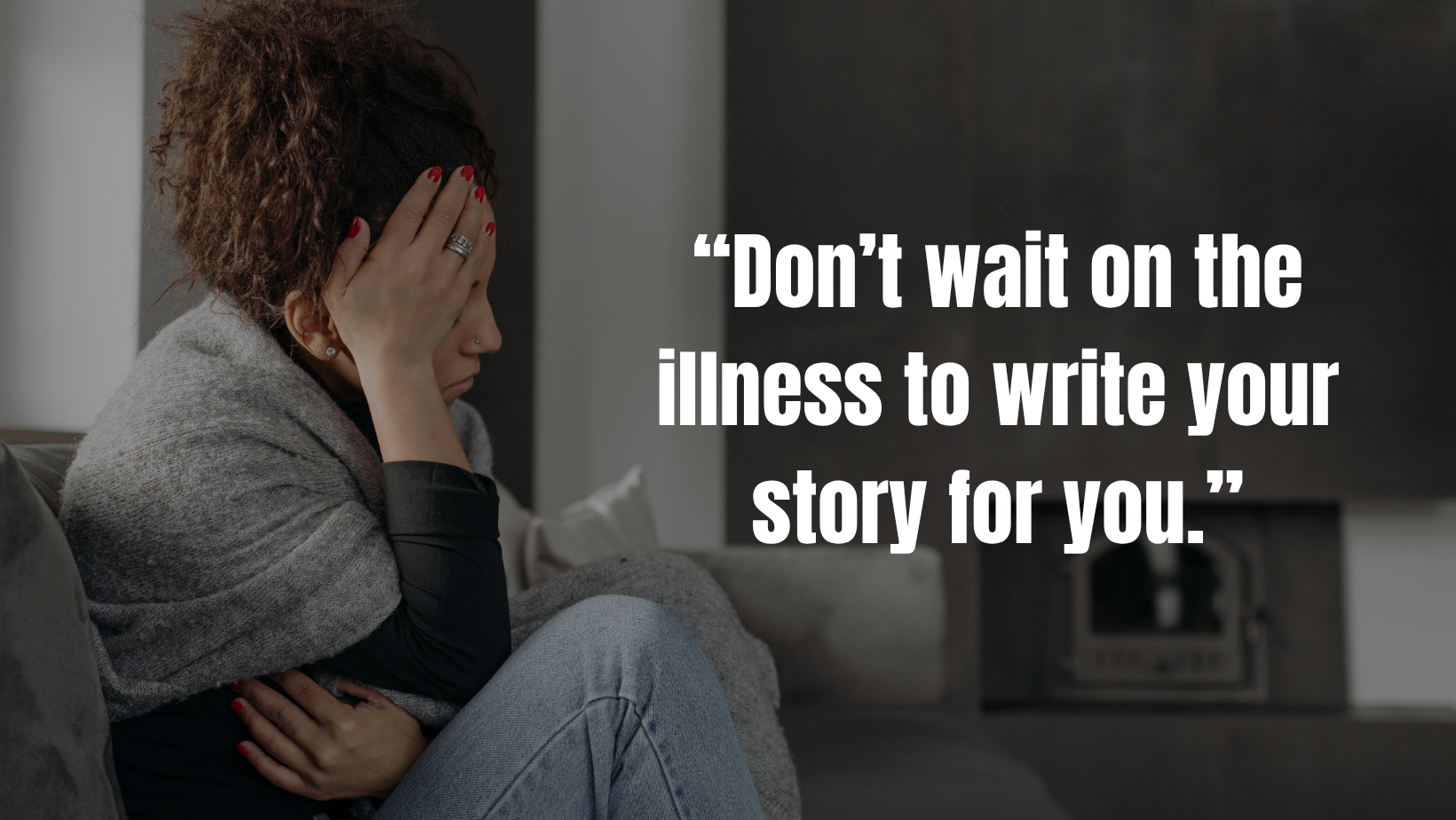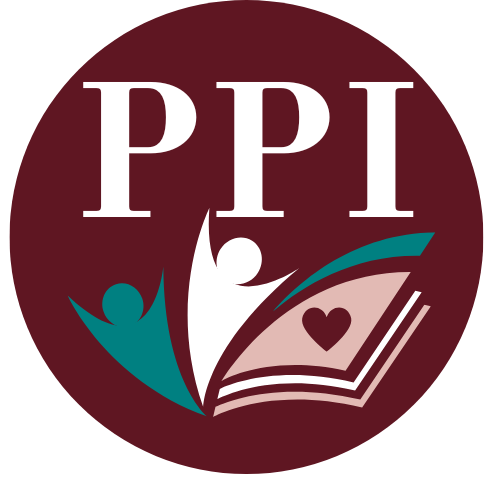Some
stories aren’t written in journals or passed down in Sunday dinner
conversations.
Some
are carried in the body.
The
pain in your back that won’t go away.
The high blood pressure that’s “just how it is” in your family.
The diabetes, the fatigue, the mental fog, the depression, the anxiety…
It’s
not just DNA. It’s often unspoken history. And that is why this
week, in honor of
National Chronic Disease Day, I want to talk about the
powerful connection between our health and our stories.
What
if what’s hurting you is also what’s been hidden?
So
many of us in the Black community—especially our men—were raised to keep quiet,
tough it out, and “man up.” You didn’t talk about the pain. You definitely
didn’t write about it. You were just supposed to deal with it.
But
silence can be heavy.
And what we don’t release in words, the body often absorbs.
I’ve
talked to too many men who carried stress, trauma, grief, and fear like extra
weight on their shoulders. I’ve watched women normalize anxiety and fatigue,
calling it strength when really, they were burning out in silence.
What
if we broke that cycle?
What if chronic illness wasn’t just physical—but also generational, emotional,
even spiritual?

Writing
your story is a form of self-care. It’s a detox for the soul. It allows you to
name what you’ve carried—so your body doesn’t have to carry all of it alone
anymore.
- That
illness you’ve “managed” but never explored the emotional roots of?
- That
diagnosis no one in your family wants to talk about?
- That
trauma that you’ve tried to out-pray but never out-write?
Your
story matters—and your body may be begging you to finally tell it.
When
we write our memoirs, we don’t just capture memories—we release burdens.
We don’t just inform our children—we interrupt cycles.
I’m reminded of Robin Roberts’ powerful
memoir, Everybody’s Got Something—a phrase her mother used to remind her
that everyone’s carrying something, even if they wear a smile on their face.
In her book, Robin shares her journey of
surviving breast cancer and a rare blood disorder called MDS that
required a bone marrow transplant. But what struck me most wasn’t just the
physical battle—it was the emotional and spiritual one. The moments when she
leaned on her faith, wrestled with the unknown, and found strength in being
vulnerable, even in the spotlight.
“I’ve
learned that we’re all stronger than we think. And when we open up about our
pain, we give others permission to do the same.” — Robin Roberts,
Everybody’s Got Something
Her story is a reminder that chronic
illness doesn’t define you—but it does shape your journey. And when you
tell that story, you take control of the narrative. You inspire someone else.
You heal a part of yourself.
Robin told her truth publicly—but some
of the most powerful stories are told privately, in journals, in letters, in
the quiet moments when someone decides to finally write it down.
I
remember speaking with a man who had survived a heart attack at 48. He was a
proud father, a pastor, and a community leader—but what brought him to tears
wasn’t the stroke. It was realizing that no one knew how close he came to
dying because he never told them how hard he had been pushing himself.
He
told me, “Dr. J, I’ve been dying silently and successfully at the same time.”
That
moment lit a fire in me. How many other men are writing sermons, running
businesses, raising families—but not writing the story of their own pain,
perseverance, and purpose?

Chronic
disease doesn’t just attack the body—it tries to steal the legacy.
Our
men are told to fight, but not to feel. To show up strong, but never
vulnerable. That silence is costing us—our health, our peace, and our next
generation’s understanding.
📅 National Chronic Disease Day is July
10.
🎯 Don’t wait for the illness to write
your story for you.
Let’s
tell the truth about what hurts.
Let’s write about what we’ve survived.
Let’s heal out loud.
With
wellness and wisdom,
Dr. Janice R. Love





